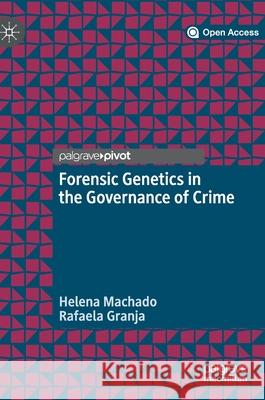Forensic Genetics in the Governance of Crime » książka
topmenu
Forensic Genetics in the Governance of Crime
ISBN-13: 9789811524288 / Angielski / Twarda / 2020 / 114 str.
Kategorie:
Kategorie BISAC:
Wydawca:
Palgrave Pivot
Język:
Angielski
ISBN-13:
9789811524288
Rok wydania:
2020
Dostępne języki:
Ilość stron:
114
Waga:
0.30 kg
Wymiary:
21.01 x 14.81 x 0.97
Oprawa:
Twarda
Dodatkowe informacje:
Wydanie ilustrowane











